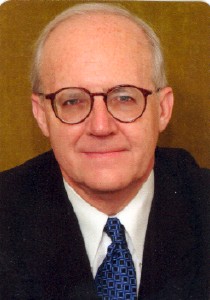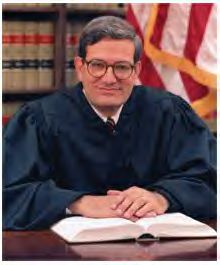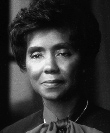United States v. Reynolds, 345 U.S. 1 (1953), is a landmark legal case decided in 1953, which saw the formal recognition of the state secrets privilege, a judicially recognized extension of presidential power. The US Supreme Court confirmed that "the privilege against revealing military secrets ... is well established in the law of evidence".

Danny Julian Boggs is an American lawyer and a senior United States circuit judge of the United States Court of Appeals for the Sixth Circuit. He was appointed to the court in 1986 and served as its chief judge from September 2003 to August 2009. Boggs was on the short list of President George W. Bush's candidates for the U.S. Supreme Court.

José Alberto Cabranes is an American lawyer who serves as a senior United States circuit judge of the United States Court of Appeals for the Second Circuit and a former presiding judge of the United States Foreign Intelligence Surveillance Court of Review ("FISCR"). Formerly a practicing lawyer, government official, and law teacher, he was the first Puerto Rican appointed to a federal judgeship in the continental United States (1979).

American Civil Liberties Union v. National Security Agency, 493 F.3d 644, is a case decided July 6, 2007, in which the United States Court of Appeals for the Sixth Circuit held that the plaintiffs in the case did not have standing to bring the suit against the National Security Agency (NSA), because they could not present evidence that they were the targets of the so-called "Terrorist Surveillance Program" (TSP).

Milan Dale Smith, Jr. is an American attorney and jurist serving as a United States circuit judge of the United States Court of Appeals for the Ninth Circuit. Smith's brother, Gordon H. Smith, was a Republican U.S. Senator from 1997 to 2009. Milan Smith is neither a Republican nor a Democrat, and he considers himself to be a political independent.
Harris L Hartz is an American jurist and lawyer who serves as a federal judge on the U.S. Court of Appeals for the Tenth Circuit.

Richard M. Berman is a senior United States district judge of the United States District Court for the Southern District of New York.
Hartman v. Moore, 547 U.S. 250 (2006), is a decision by the Supreme Court of the United States involving the pleading standard for retaliatory prosecution claims against government officials. After a successful lobbying attempt by the CEO of a manufacturing company against competing devices that the US Postal Service supported, the CEO found himself the target of an investigation by US postal inspectors and a criminal prosecution that was dismissed for lack of evidence. The CEO then filed suit against the inspectors and other government officials for seeking to prosecute him in retaliation for exercising his First Amendment rights to criticize postal policy. The Court ruled 5-2 that to prove that the prosecution was caused by a retaliatory motive, the plaintiff bringing such a claim must allege and prove that the criminal charges were brought without probable cause.
DaimlerChrysler Corp. v. Cuno, 547 U.S. 332 (2006), is a United States Supreme Court case involving the standing of taxpayers to challenge state tax laws in federal court. The Court unanimously ruled that state taxpayers did not have standing under Article III of the United States Constitution to challenge state tax or spending decisions simply by virtue of their status as taxpayers. Chief Justice John Roberts delivered the majority opinion, which was joined by all of the justices except for Ruth Bader Ginsburg, who concurred separately.

David Brookman "Brooks" Smith is a senior judge of the United States Court of Appeals for the Third Circuit. He was previously Chief Judge of both the United States Court of Appeals for the Third Circuit and the United States District Court for the Western District of Pennsylvania, and is the only judge in the history of the Third Circuit to have served as both a chief district judge and chief of the Court of Appeals.
Strickland v. Washington, 466 U.S. 668 (1984), was a landmark Supreme Court case that established the standard for determining when a criminal defendant's Sixth Amendment right to counsel is violated by that counsel's inadequate performance.

Jerry Edwin Smith is an American attorney and jurist serving as a United States circuit judge of the United States Court of Appeals for the Fifth Circuit.
Ziglar v. Abbasi, 582 U.S. ___ (2017), is a Supreme Court of the United States case in which the Court determined, by a vote of 4–2, that non-U.S. citizens detained in the aftermath of the September 11 attacks cannot recover monetary damages from high level federal officials for the conditions of their confinement. The case was consolidated with Hastey v. Abbasi, and Ashcroft v. Abbasi. It was argued on January 18, 2017.
Denise Louise Cote is a senior United States district judge of the United States District Court for the Southern District of New York.

Consuelo Bland Marshall is a senior United States district judge of the United States District Court for the Central District of California.

Stephanos Bibas is an American lawyer and jurist who serves as a circuit judge on the U.S. Court of Appeals for the Third Circuit. Before his appointment to the bench, Bibas was a professor of law and criminology at the University of Pennsylvania Law School, where he also served as director of its Supreme Court clinic.
Citizens for Equal Protection v. Bruning, 455 F.3d 859, was a federal lawsuit filed in the United States District Court for the District of Nebraska and decided on appeal by the United States Court of Appeals for the Eighth Circuit. It challenged the federal constitutionality of Nebraska Initiative Measure 416, a 2000 ballot initiative that amended the Nebraska Constitution to prohibit the recognition of same-sex marriages, civil unions, and other same-sex relationships.

Paul Adam Engelmayer is a United States district judge of the United States District Court for the Southern District of New York.

Saleh v. Bush, 848 F.3d 880, was a class action lawsuit filed in 2013 against high-ranking members of the George W. Bush administration for their alleged involvement in premeditating and carrying out the Iraq War. In December 2014, the district court hearing the case ordered it dismissed with prejudice. The dismissal was affirmed by the United States Court of Appeal for the Ninth Circuit.
Walker Process Equipment, Inc. v. Food Machinery & Chemical Corp., 382 U.S. 172 (1965), was a 1965 decision of the United States Supreme Court that held, for the first time, that enforcement of a fraudulently procured patent violated the antitrust laws and provided a basis for a claim of treble damages if it caused a substantial anticompetitive effect.










